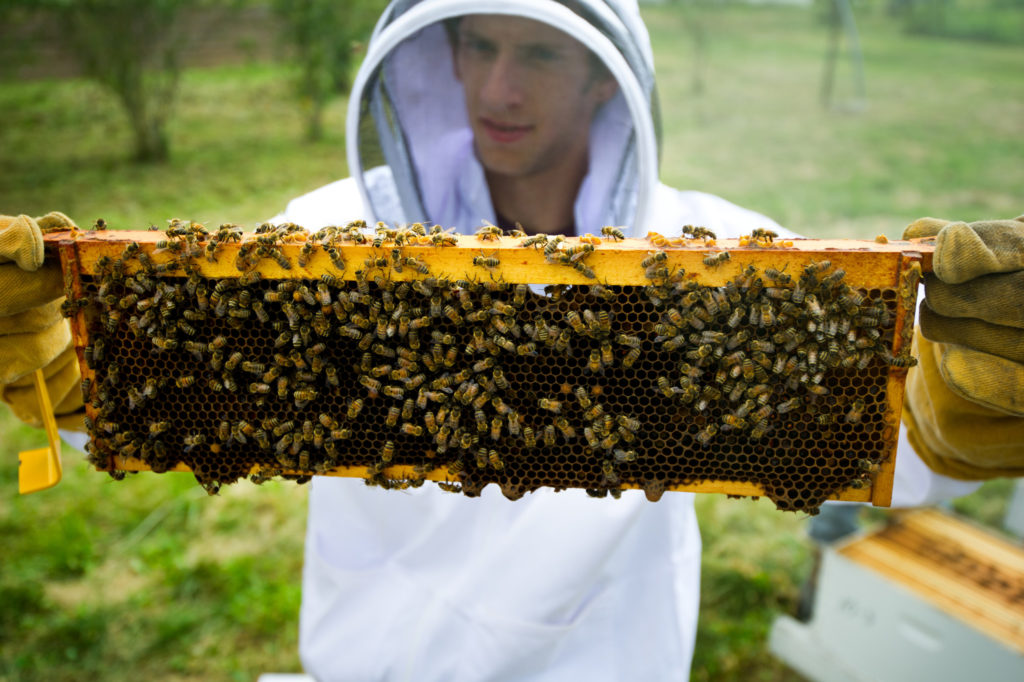
Berea College is now certified as an affiliate of the Bee Campus USA program.
Long known as a leader in sustainability and stewardship of natural resources, Berea College is the 85th educational institution in the nation to achieve certification of its efforts in creating sustainable habitats for pollinators, which are vital to feeding the planet.
“College students, faculty, administrators and staff are among the nation’s most stalwart champions for sustainable environmental practices,” said Berea College First Lady Laurie Roelofs, who chairs Berea’s Bee Campus USA Committee. “We take pride in the College’s commitment to minimize hazards to pollinators, such as not using harmful pesticides or herbicides.”
Applying for certification as a Bee Campus USA coincides with other ongoing practices on Berea’s campus, gardens, farm and forest lands. Mrs. Roelofs previously established monarch waystations for migrating butterflies and planted expanded gardens to attract, feed and provide breeding habitats for them in order to alleviate the decline of these important pollinators.
“One in three bites of food we eat is due to pollinators,” said Wendy Warren, coordinator of Berea College’s Forestry Outreach Center. “We are excited about the opportunities for student research and service-learning, including creating pollinator habitats with native plants and removing invasive species that crowd out and overtake the food and habitat sources of bees and other pollinators.”
To raise awareness about the plight of pollinators, Berea plans to publish a webpage to disseminate information to the campus and external communities including an integrated pest management plan, a list of native plants incorporated into the campus landscape including their bloom time and habitat needs, links to student and faculty research on pollinator issues and information about upcoming events.
Bee Campus USA is an initiative of the Xerces Society for Invertebrate Conservation, a nonprofit organization based in Portland, Ore. Its mission is to galvanize communities and campuses to sustain pollinators by providing them with healthy habitats rich in a variety of native plants and free of pesticides. Pollinators like bumble bees, sweat bees, mason bees, honey bees, butterflies, moths, beetles, flies, hummingbirds and others are responsible for the reproduction of almost 90 percent of the world’s flowering plant species.
“The program aspires to make people more PC—pollinator conscious, that is,” said Scott Hoffman Black, Xerces’ executive director. “If lots of individuals and communities begin planting native, pesticide-free flowering trees, shrubs and perennials, it will help to sustain many, many species of pollinators.”
According to Bee Campus USA founder Phyllis Stiles, “Each certified campus must renew their certification annually and report on accomplishments from the previous year.”
Other colleges and universities are invited to explore the certification process and discover four simple ways to help pollinators.